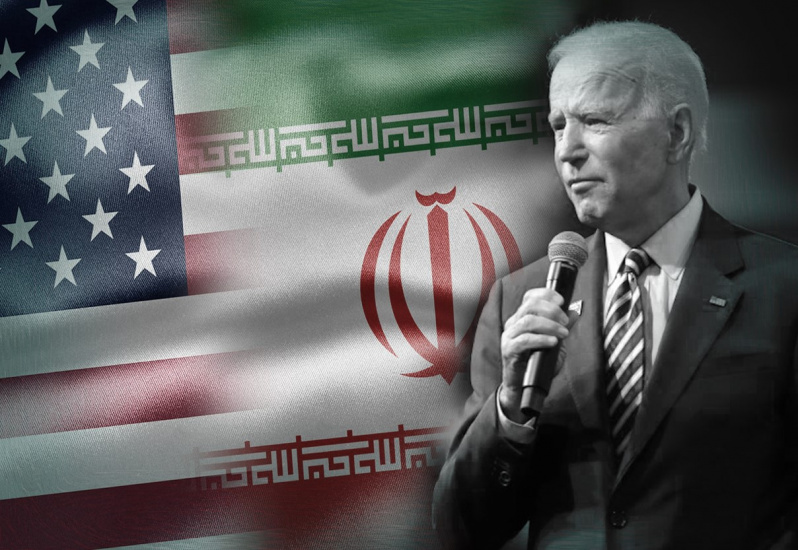Toward A Reset in US-Iran Relations

Unlike 2020, one of the bleakest years in US-Iran relations, 2021 has the potential to bring a modicum of relief to the explosive tensions between the two countries and, perhaps, a modest reset, in light of confrontational Trump's departure and the onset of Joe Biden's presidency, which has raised global expectations for America's "return to diplomacy."
The electoral defeat of Donald Trump will likely mark the end of one of the most divisive chapters in the annals of modern US foreign policy. In sharp contrast to his mercurial predecessor, Biden is a consensus-builder centerist politician who has pledged to prioritize close relations with allies and to return the US to the so many international commitments abandoned by Trump. In his first days in office, Biden has promised to rejoin the World Health Organization, cancel Trump's ban on Muslim travel, reinstate the protections for many illegal immigrants, and adopt the Paris climate accord. Also, he has defended the Iran nuclear agreement as beneficial to American national interests and has repeatedly stated that under his administration the US will re-embrace the agreement, known as the Joint Comprehensive Plan of Action (JCPOA) on the condition that Iran will abide by its obligations. For its part, Tehran has consistently maintained that its incremental steps away from the JCPOA are "reversible" and it is the US and not Iran that has abandoned the diplomatic 'table'.
Fortunately, America's European allies have recently evinced a new determination to safeguard the JCPOA by issuing a joint statement that dispenses with the "JCPOA plus" nonstarter and underlines the importance of full implementation of the agreement by all the parties involved. China and Russia too have voiced in opposition to the notion of revising or "strengthening" the JCPOA, rightly emphasizing the need to adhere to the terms of the international agreement. Clearly, with their economies battered by the pandemic, the European governments are fundamentally uninterested in a renewed Iran nuclear crisis at their doorsteps and expect the Biden administration to take proactive steps in diffusing US tensions with Iran.
Hence, the ball is clearly in Washington's court and Biden and his foreign policy team ought to recognize the importance of taking the first steps. These include removing the travel restrictions on Iran, lifting some of the Trump-imposed sanctions, which are illegal and contrary to the UN Security Council Resolution 2231, and assist Iran with its current fight against covid-19. At the same time, Biden needs to rein in on America's allies in the region hostile toward Iran and prevent them from making anti-Iran provocations, otherwise it is a safe bet that the regional environment will remain tense and unconducive to a new US diplomatic approach toward Iran. A historical deja vu, this approach can try to pick up where they left off in early 2016, that is to say, a 'back to the past' policy of the Obama era in the main, which can be summarized as detente with Iran. Sadly, that legacy was incomplete and did not go very far, i.e., Obama failed to telescope the nuclear accord to a real normalization of relations with Iran. Henceforth, a straightforward return to the Obama-era policies toward Iran, though a step forward, will likely prove insufficient and, indeed, may introduce further complications. Rather, a whole new US policy on Iran needs to be designed, that does not rest on the big assumption of Iran as an enemy state.
For sure, Iran and the US have a host of disagreements on various regional and non-regional issues, and tackling these issues represents a daunting challenge for both Tehran and Washington. But, the two countries also have a good deal in common, for example, both support the current governments in Iraq and Afghanistan, and are commonly menaced by narcotics traffic and ISIS terrorism. Biden can and should play a more balancing role in terms of Persian Gulf power rivalries, as well as in addressing the war in Yemen.
Realistically speaking, one should not anticipate a complete reorientation of American foreign policy in the Middle East, encompassing Iran. Both the turbulent Middle East and the US foreign policy structure are resistant to sudden and comprehensive changes and, therefore, it is best to proceed with prudent caution without, however, losing sight of the lofty objective of achieving a reset; the latter does not necessarily require resolving all the outstanding issues between the two countries, as the current US-China relations clearly demonstrates, and the goal ought to be designing a new approach that aims to reduce the bilateral tensions to the point that normal interactions on trade and non-trade fronts will be possible. After all, the JCPOA has an economic dimension and is in a certain sense in part a trade agreement. Even under Trump, the "maximum pressure strategy" was not all-consuming and there were waivers for Iraq, India, and Azerbaijan, which need to be expanded by the incoming Biden administration. With respect to Iraq, whose economy is increasingly intertwined with Iran, the temporary Trump-induced waivers need to become permanent and, at the same time, US would need to recognize the geopolitical reality of post-war Iraq's bandwagoning with Iran. In a word, the whole American Iran policy needs to be reinvented.

